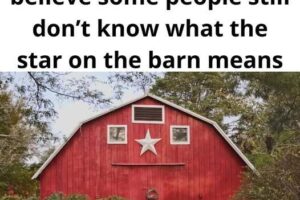I was picking up my car (which had just been found after being stolen) when I saw a girl who looked sad. Turns out she was $12 short to get her car back. I offered to give it to her, and she asked if there was any way she could pay me back. So, I asked her to just help someone else one day when she had the chance.
She stared at me like she didn’t believe people still said things like that. Her hands were shaking as she counted her crumpled bills. I could tell the $12 wasn’t the only problem in her life. She looked like someone who hadn’t slept in days—pale skin, dark circles, that restless shifting from one foot to the other.
I gave the cashier the money, and she was able to get her keys. She said her name was Carina, and that her life was “kind of a mess” right now. I didn’t press for details. I just smiled and told her I hoped her week got better. She thanked me three times before we walked out into the hot parking lot.
I thought that was the end of it. Just one of those random encounters you forget after a while. But two weeks later, I was sitting at a little café downtown when someone tapped my shoulder. I turned, and there was Carina. This time, she was smiling, holding a paper cup with both hands like she didn’t want to spill the moment.
“I found you,” she said, almost laughing. “You left before I could say this, but I really want to pay you back.”
I told her again she didn’t need to. But she shook her head. “No, you don’t understand. That day? I wasn’t just short $12. I was short on a reason not to give up.”
That made me pause. She sat down across from me without asking, like she had decided this was her chance and she wasn’t going to waste it.
She told me she’d been kicked out of her apartment after her roommate bailed on rent. Her car was all she had left, but it got towed when she left it overnight somewhere she shouldn’t have. The $12? That was the last gap between her and having a place to sleep that night. “I was ready to just… disappear,” she said, looking down. “And then you came along. It wasn’t about the money—it was that you cared enough to help a total stranger without wanting anything back.”
I didn’t know what to say. I just listened. She said after that day, she called an old friend, crashed on her couch, and started applying for jobs again. She even landed one at a florist’s shop the week before.
I told her I was happy for her, but honestly, I felt a little uncomfortable—like I hadn’t done anything that special. But she wasn’t done. She said she wanted to buy me lunch, as a start.
We sat there for over an hour. I learned she used to study graphic design, loved painting watercolors, and had this stubborn hope that things could still turn around for her. Before we left, she said, “You told me to help someone else one day. I’ve been thinking about how to do that.”
I figured that was just something nice people say. But a month later, I got an unexpected call from my cousin Tomas.
“You know a girl named Carina?” he asked.
I said yeah, kind of, why?
“She showed up at my job this morning. Said you helped her once, and now she’s helping me. She gave me a ride to the hospital when my car died.”
I didn’t even know Tomas’s car had broken down. He’s always been too proud to ask for help. I couldn’t believe she’d remembered my cousin’s name from a story I’d told her about my family during lunch.
That’s when it clicked—she’d actually taken my words seriously.
From there, little stories started trickling back to me. My friend Sahar told me about a young woman who paid for her bus fare when she forgot her wallet. My neighbor said a “girl with bright blue sneakers” helped her carry groceries up the stairs. It didn’t take long to realize it was all Carina.
One rainy evening, I ran into her again—this time at the grocery store. She had a basket full of bread, peanut butter, and fruit. She said she’d started making simple lunch bags for the homeless in our area. “It’s small, but it’s something,” she said.
I told her she was turning into a one-woman kindness machine. She laughed but then said something I’ll never forget: “I think people underestimate how contagious small acts are. If you hadn’t given me that $12, I wouldn’t have had the energy to do any of this.”
I thought about that a lot over the next year.
One day, out of nowhere, she called me again. This time, her voice was shaking—not from sadness, but excitement. “You’re never going to believe this,” she said. “I got into a design program. Full scholarship. I’m moving in two months.”
I congratulated her, genuinely happy. But she wasn’t finished. “Before I go, I want to do something for you. Not money, not lunch. Something that matters to you.”
I told her there wasn’t anything I needed. She insisted. So, I mentioned my mom’s tiny community garden project that was struggling for volunteers. The next weekend, Carina showed up with a dozen people—friends she’d met through all these small acts she’d been doing. They weeded, planted, and even built new raised beds. My mom was nearly in tears.
It was one of those days you can feel changing you while it’s happening.
Before Carina left for her program, we met for coffee one last time. She handed me a folded piece of paper. Inside was a list of names—people she said she’d helped because of me. “It’s like a chain,” she said. “I figured you’d want to know it’s still going.”
I didn’t cry until she left.
Years passed. We kept in touch on and off, mostly through holiday messages. I saw her Instagram posts about her art shows, the nonprofit work she started doing, the communities she was building. And every time, I thought about that day in the tow yard.
One afternoon, out of the blue, I got a package in the mail. Inside was a framed watercolor painting—my car, the one I’d picked up that day, parked under a bright sky. The caption at the bottom read: “Sometimes $12 is everything.”
I hung it in my living room.
Looking back now, it’s wild to think how something so small could ripple so far. We’re trained to believe big change requires big gestures. But I’ve learned it’s usually the little, forgettable moments that plant the seeds.
That day, I just thought I was helping a stranger get her car back. I didn’t know I was giving her the nudge she needed to start a whole chain of kindness that would reach my cousin, my neighbor, my mom, and who knows how many others.
If there’s one thing I’ve taken from this, it’s that you never really see the end of your actions. They keep going, passed from person to person, long after you’ve forgotten about them.
So, yeah, I believe in karma now—but not in some mystical, instant way. It’s slower, quieter, built on choices you barely notice making. And if you’re lucky, one day it circles back to you, framed in watercolor.
If you’ve read this far, I hope you remember this the next time you get a chance to help someone. You never know—you might just be the $12 in their story.
If this touched you, please share it with someone who might need a reminder today. And maybe, just maybe, be someone’s $12.



